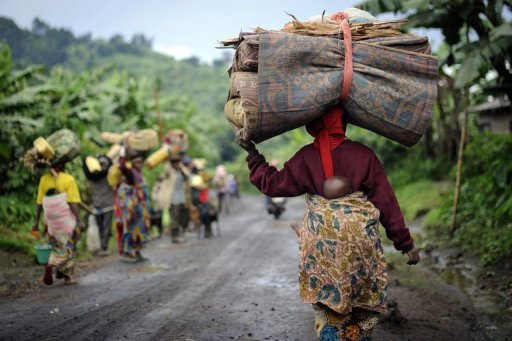
UNICEF appeals for aid for displaced persons in DR Congo’s South Kivu province

UNICEF on Tuesday urged humanitarian partners to intensify their efforts to help thousands of people displaced in the highlands of the Democratic Republic of Congo’s South Kivu province.
In a statement, UNICEF said that the people urgently required food, shelter, health and education assistance and it was concentrating its efforts in Mikenge area where an estimated 40,000 people are camped.
“The crisis in South Kivu has flown under the radar as DRC grapples with the Ebola crisis until recently and multiple crises in the eastern part of the country,” the statement read in part.
According to UNICEF, thousands of people in Uvira, Fizi and Mwenga were forced to flee from their homes in the last three months due to inter-ethnic conflicts which destroyed their livelihoods.
“UNICEF estimates that 10 health centres were looted and rendered unusable, while another 18 were abandoned by medical staff fleeing violence. At least 28 schools were looted or damaged in December 2019 and have not been rebuilt since, leaving thousands of children without a place to study.”
UNICEF said that it had assisted in reopening a hospital in Mikenge in addition to restocking its medical supplies which have been crucial in treating thousands of people in that period.
The UN agency added that it was also working to resettle more than 15 lost children by reuniting them with their parents or placing them in host families.
Moreover, it said it planned to distribute four tons of emergency food rations to about 4,000 vulnerable people.
According to the UNHCR, the UN refugee agency, more than one million people have been forced to flee their homes in the eastern DR Congo since the beginning of 2020 due to violence perpetrated by armed groups.
The UNHCR said the latest incidents were exacerbating an already deteriorating situation and putting additional strain on areas hosting the displaced persons.






